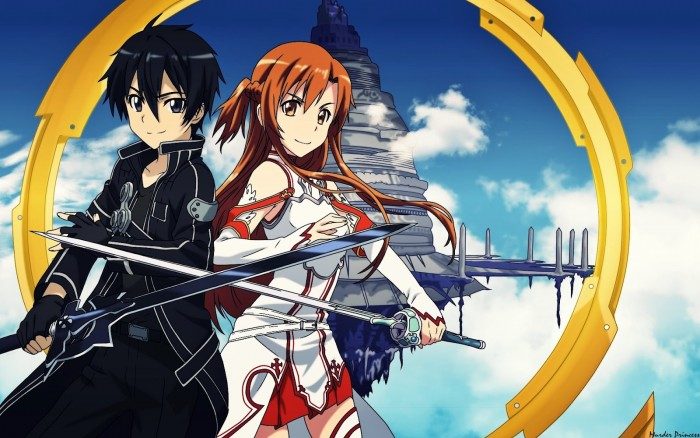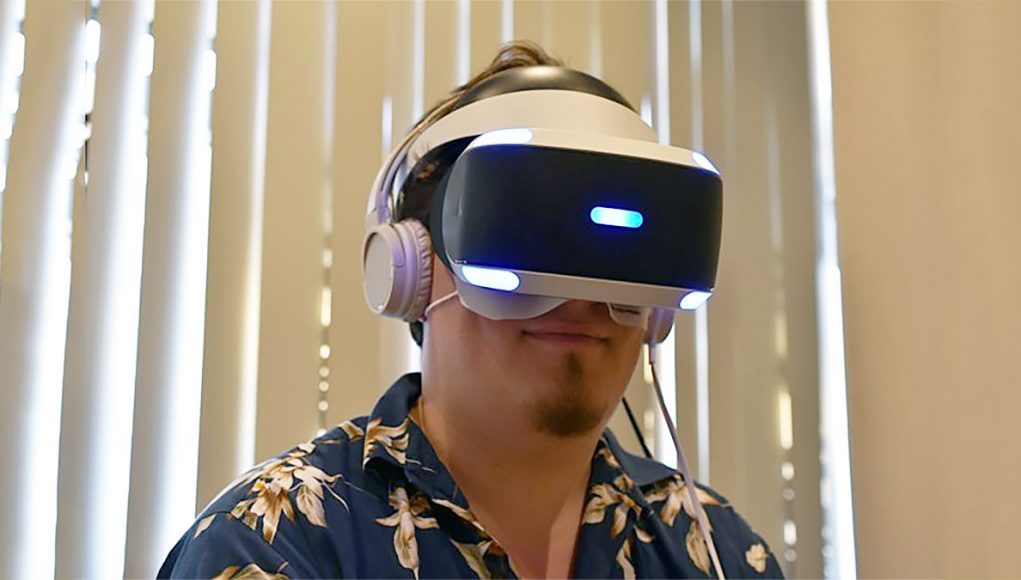Having founded Oculus in 2012 and been an important face for the company throughout its growth from fledgling startup to $2 billion acquisition by Facebook and beyond, it was a shock to see Palmer Luckey leave the company just two months ago. Having shied away from the public eye since September 2016 after the ousting of a polarizing political position, Luckey has gone on record in an interview for the first time since leaving the company.

Speaking with MoguraVR during a trip to Tokushima, Japan to attend the anime event Machi Asobi, Luckey opened up in Part 1 about his personal hobby of cosplay—a freedom he didn’t have while at Facebook—the Japanese VR market, and the future of VR headsets. In Part 2, he talks about virtual relationships, an obsession with Pokémon Go, and he teases what he’s working on next.
Update: Part 3 of Luckey’s interview has been published.
Half-Life 2: VR dev Marulu translated the article, which was originally published in Japanese, for Road to VR.
Palmer’s Passion for VR

MoguraVR:
From where does your passion for VR come from nowadays?
Palmer Luckey:
A few years have passed since I founded Oculus. I now have more passion for VR than ever before. Before Oculus was founded VR was just my hobby side project. Ever since founding Oculus I have been devoting every single day of my life towards VR. I have tried almost all the VR content & hardware and I have met devs from almost all VR studios. Over the last few years I have become more confident that VR will become mainstream. On an almost weekly basis I find content that makes me want to say: ‘VR is the future, I have to make the future of VR happen sooner.’ What I fear the most at the moment is that the speed at which VR is spreading at is not fast enough, and that people are going to lose their excitement for VR at this rate.
What motivates me right now is ‘How can we make VR more attractive for everyone’, ‘How can we speed up the popularization of VR?’ and ‘How can we help VR developers to succeed as a business?’ At the moment it is difficult for VR developers to support themselves just with developing VR content.
MoguraVR:
So enthusiasm for VR is getting even bigger?
Palmer Luckey:
People are more passionate than ever. Of course sometimes there are arguments about it. But that is to be expected. It now has been five years since I founded Oculus in 2012, if you had told me back then that VR is going to be this successful this fast I would have not been confident in that. I would have thought you are insane.
MoguraVR:
How were the five years after funding Oculus?
Palmer Luckey:
It went by really fast, I can’t even believe that it really has been five years. Every day of my life was fulfilled, looking back at it the time it really went by in a flash.
A Sci-fi World for Car Fanatics
MoguraVR:
I think we should change the subject. Palmer you were influenced from the sci-fi novel Snow Crash (1992) if I recall right. Many people are thinking that as technology progresses we are getting closer to a sci-fi world, if you had to create an anime right now what would it be about? What kind of future do you imagine?
Palmer Luckey:
The truth is I actually have several ideas for a sci-fi anime. It’s something I think about in my spare time but I don’t know if I ever will realize them.
One of them is about a future in which automation is commonplace. All cars are self-driving and all the work is done by computers. Humans no longer know how to drive a car and have become unable to think with their own heads. (They are relying on machines to think.) Individuality has disappeared. The only exception is a group that is rebelling against this society. They can assemble, repair, and drive their own cars. They do not use any handy technology like computers and are thinking with their own heads, they are living freely without being swallowed up by the system.
MoguraVR:
Is this a dystopian future like the ones you see in The Matrix (1999) and The Terminator (1984)?
Palmer Luckey:
What I want to depict is a good future. It is not a dystopia where the machines are controlling everything. But you could say that it is a bit like a dystopia. I want to show how technology that is good for society can at the same time make society lose it’s greatest strength, individuality. In opposition to this the Rebel group members are proud of their individuality and want to display it.
MoguraVR:
By the way, how is VR doing in such a world?
Palmer Luckey:
In this story VR does makes almost no appearances. That actually is a problem I had when writing these stories, if there is a sci-fi world in which VR has become commonplace, there would no longer be a need for cars [laughs].
MoguraVR:
Haha, yes there no longer would be any need for transportation.
Palmer Luckey:
Indeed, if everything is available in VR everyone would spend most of their time in VR and would only very rarely leave VR.
Sword Art Online and VR in the Zeitgeist

MoguraVR:
In Sword Art Online (2012) VR is being depicted as extremely attractive.
Palmer Luckey:
Really? Don’t you die in SAO [laughs]? But even though such terrible things have happened in Aincrad everyone is still playing [fictional] VR games such as Alfheim Online and Gun Gale Online.
MoguraVR:
Yes, they don’t seem to learn their lesson.
Palmer Luckey:
Thanks to SAO’s popularity in Japan there are now a few PC VR gamers in Japan, SAO made the concept of VR easy to understand. The US had a distorted view of view of VR because of the movie The Matrix, but that image is gradually changing. Samsung ran a VR commercial during the Super Bowl, the response of the millions of people that watched it was very positive.
MoguraVR:
Is the amount of ads for VR in the USA increasing?
Palmer Luckey:
It is increasing considerably. For example there was a Samsung commercial in which a ostrich wears a Gear VR that played in US cinemas. [link to commercial]







